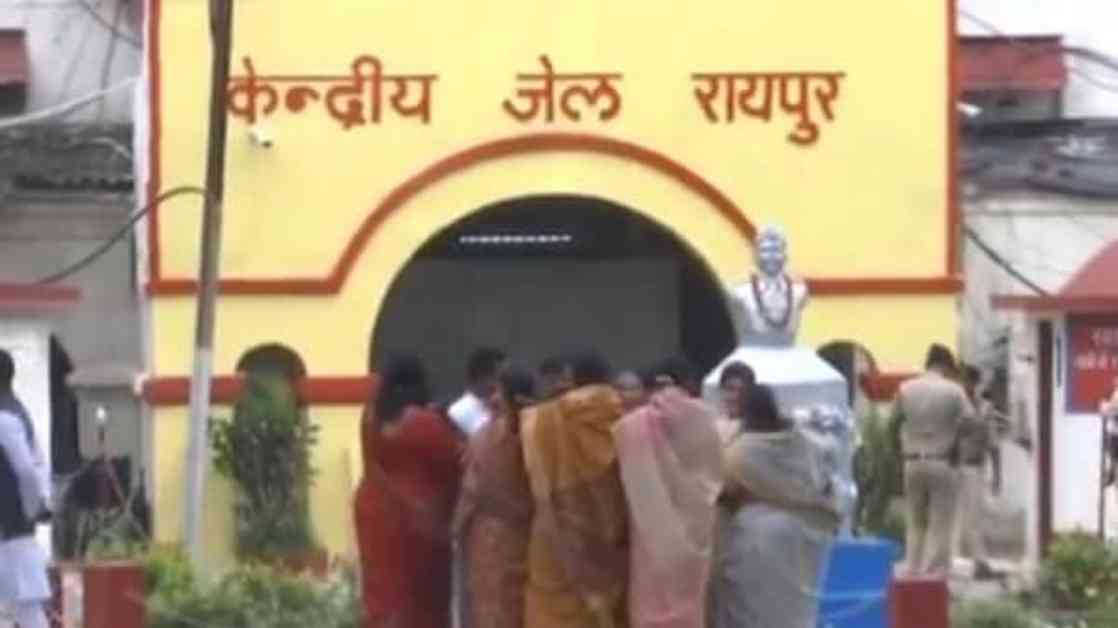Chhattisgarh Prisons to Offer RSS Magazines for Inmates
The Chhattisgarh prison system is undergoing a transformation as authorities have recently decided to introduce Panchjanya and Organiser magazines, affiliated with the Rashtriya Swayamsevak Sangh (RSS), into the libraries available to inmates. This initiative aims to provide prisoners with a diverse range of reading materials, including publications that delve into Sanatana Dharma, or the eternal principles that underpin Indian culture and spirituality.
State Director General (Jail) Himanshu Gupta, during a routine inspection, noted the absence of these magazines in the 33 prisons across Chhattisgarh, which include five central, 20 district jails, and eight sub-jails. Recognizing the potential impact of these publications on the rehabilitation and education of prisoners, Gupta recommended their addition to the existing library collections.
The decision to incorporate Panchjanya and Organiser magazines into the prison libraries is rooted in the belief that exposure to diverse perspectives and cultural insights can aid in the personal growth and development of inmates. By providing access to literature that promotes traditional Indian values and principles, the authorities seek to foster a sense of awareness, patriotism, and moral guidance among the incarcerated population.
Enhancing Inmate Education and Rehabilitation
The introduction of RSS-affiliated magazines into Chhattisgarh jails is part of a broader effort to enhance the educational and rehabilitative opportunities available to prisoners. By expanding the range of reading materials accessible to inmates, authorities hope to create a more conducive environment for intellectual stimulation, personal reflection, and character development.
Incorporating these magazines into the prison libraries is seen as a step towards promoting the inmates’ understanding of Sanatana Dharma and fostering a sense of cultural identity and heritage. Through exposure to literature that explores the rich tapestry of Indian traditions, beliefs, and values, prisoners may find inspiration, solace, and guidance in their personal journeys of self-discovery and redemption.
Political Reactions and Public Discourse
Unsurprisingly, the decision to include Panchjanya and Organiser magazines in Chhattisgarh jails has sparked a debate among political circles, with both the Congress and the BJP weighing in on the matter. While the Congress has expressed concerns about the potential divisiveness and propaganda associated with these publications, the BJP has defended the move as a means of promoting cultural awareness and intellectual engagement among inmates.
Congress leader Sushil Anand Shukla criticized the RSS-backed magazines, citing divisive ideologies and hateful propaganda as reasons to oppose their inclusion in the prison libraries. On the other hand, Chhattisgarh Deputy Chief Minister and BJP leader Vijay Sharma emphasized the importance of offering diverse reading materials to inmates, including publications that delve into Sanatana Dharma and traditional Indian culture.
Final Thoughts and Reflections
As Chhattisgarh prisons prepare to welcome Panchjanya and Organiser magazines into their libraries, the broader implications of this decision extend beyond mere access to reading materials. By embracing a holistic approach to inmate education and rehabilitation, authorities are recognizing the transformative power of literature in shaping individuals’ perspectives, values, and aspirations.
The inclusion of RSS-affiliated magazines in the prison libraries underscores the nuanced interplay between culture, politics, and personal growth within carceral settings. As inmates embark on their journey of self-discovery and redemption, the diverse literary offerings available to them serve as windows into the rich tapestry of Indian heritage, spirituality, and wisdom.
In conclusion, the decision to introduce Panchjanya and Organiser magazines into Chhattisgarh jails represents a significant step towards promoting intellectual engagement, cultural awareness, and moral guidance among the incarcerated population. By embracing diverse perspectives, values, and narratives, authorities are not just expanding the literary horizons of prisoners but also fostering a deeper sense of connection to their cultural roots and heritage.


























